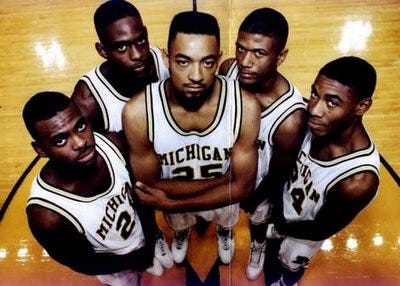content
Leadership As Influence
By Charles Lee
Leadership is often defined as influence.
In my opinion, everyone possesses the ability to “influence” or lead others in the general sense of the word, but not everyone is a leader (i.e., someone who functions in a publicly recognized role of guiding and/or influencing others). There are numerous individuals who influence the lives of many and yet don’t function well once given a key role of leadership in an organization and/or company.
The reality is that leadership in a formal sense requires a certain set of perspectives, values, and praxis that very few are able to carry out well. Over the years, I’ve had the privilege of working with some phenomenal leaders that are literally changing the landscape of our world. Here are a few insights I’ve picked up about what it takes to become a great leader:
- Pain Frames Purpose — Great leaders do not run away from pain, but rather, recognize that pain is what truly forms and informs their life purposes. It is not to say that they are sadistically looking for pain. Rather, their passions are often rooted in part by their experience of pain and suffering. Passion by definition is not only a reference to fervor, but also the willingness to move forward in the midst of pain.
- Collaboration is Necessary for Creative Innovation — Leaders recognize that they cannot and will not do it alone. Every great endeavor needs a team or community to help it flourish. Great leaders move from simply wanting collaboration to sensing a deep need for it. In other words, collaboration is not a nice add-on, but rather, a necessary foundation for moving ideas and people forward. In addition, innovative leaders welcome voices from unrelated fields to spark creativity and refinement of purpose.
- Courage Guides Decisions — Great leaders are marked by their courage in decision-making. They rarely lean towards the popular vote. Courage inherently implies that there exists a presence of fear and disheartening obstacles. Courage is the ability to move forward despite the presence of fear.
- Compassionate Justice Provides Perspective — No matter how tough a great leader may appear, deep inside they all care about the people they lead. Compassionate justice is a reference to a work that seeks to make things right with a posture of real care. It’s not simply about accomplishing the “task”, but more importantly, achieving something together without dehumanizing those participating. People ultimately “follow” a leader because they sense that they have their best interest in mind, even if it means that they go against the grain.
- Focus of Implementation — Great leaders don’t just talk, they do. They realize the hard work is in the implementation of their vision and courage. They don’t make excuses nor choose to sit on their ideas. They choose to move forward and figure things out along the way. Great leaders are focused on implementing better. There’s not satisfied with a 30,000 feet view. They also want to see what’s right in front of them. The focus is not just greater vision, but greater action. Great inspiration without great perspiration is nothing more than wishful thinking.
Living life as a leader is a noble pursuit. It takes a special person to move beyond the romanticized version of influence.
Are you a leader? If so, our world needs you at your best!
Charles is the CEO of Ideation, a creative agency that specializes in helping organizations and businesses take ideas to implementation via innovative strategy, branding, design, marketing, web, social media, and innovative events.
Email this • Print this • Subscribe to this feed
No Comments »
Nobody has shared their thoughts about this article yet. Be the first by filling out the form below and joining in the conversation!
This is a very, very good article on Leadership.
